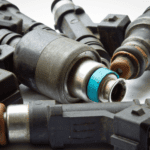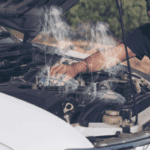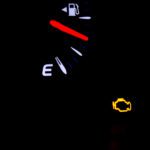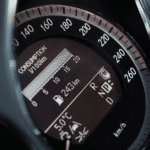If you notice a strong smell of gasoline while driving, it could be a sign of a problem with your car’s fuel system.
It is important to identify the cause of the smell and take steps to fix it.
In this article, we will explore some common reasons why your car might smell like gas and how to address the issue.
7 Common Reasons Why Your Car Smells Like Gas
1. Fuel Line
If you smell gas while driving, the fuel line should be the first place you look. Over time, cracks and breaks may form in the fuel lines due to natural wear and tear or exposure to extreme temperatures. These cracks can lead to leaks, which will cause a strong odor of gasoline. If one of your fuel lines is cracked or damaged, you must replace it immediately to avoid any safety risks.
2. Fuel Cap
Another common culprit behind a gas smell in your car is an improperly closed fuel cap. This can happen if you don’t securely close the cap after refueling or if there are issues with the gasket itself. If the gasket isn’t sealing correctly, fumes from inside the tank may escape through small openings. This leak will cause an unmistakable odor of gasoline inside your vehicle. To fix this, make sure your fuel cap is tight; if it isn’t, consider getting a new one.
3. Fuel System Issues
In more severe cases with a gas smell in the car, there may be a problem with your car’s fuel system itself. If the pressure regulator, fuel pump, or injectors are broken, gas can build up or leak out of the tank and fill the car’s cabin with a pungent smell. Replacing a gas tank is no normal repair, so a qualified mechanic should carry it out.
4. Loose spark plugs
Car engines rely on spark plugs to help ignite gasoline and move the pistons. If these are loose or broken, exhaust fumes could leak into your car and cause it to smell like gas. This is because the fumes could build up inside your car. To keep this from happening, ensure your spark plugs are securely in place whenever you work on your car.
5. Oil Leak
An oil leak could be due to worn seals or gaskets inside the engine. Over time, these seals and gaskets can break down or become damaged, allowing oil and gasoline to mix. If this happens with your car, we recommend having it inspected by a mechanic as soon as possible to prevent any potential safety risks.
6. Exhaust fumes leaking into the cabin
Sometimes, exhaust fumes leak through small cracks or holes in your vehicle’s cabin and cause a strong odor throughout the interior. This is especially common if you are driving a pre-owned car, as it may have small cracks or holes that weren’t visible to the owner when purchasing it.
7. Poor Fuel Pressure
Finally, another reason your car could smell like gas is due to issues with the fuel pressure. If there isn’t enough pressure in your fuel line, excess gasoline may leak into other parts of your vehicle, including the cabin and exhaust system. This will cause a strong odor that can be difficult to eliminate without taking action. So, it’s essential to check your fuel pressure often and replace any broken parts immediately.
Test for Leaks by Shutting Off Your Engine and Waiting a Few Minutes
Try this simple test if you still need to figure out what could be causing your car’s gas smell. Turn off your engine and wait 5–10 minutes. If you can still smell gas, there is probably a leak somewhere in the fuel system that needs attention.
The sooner you address this issue, the better, as even minor leaks could lead to significant problems if left untreated. I strongly recommend you do not restart the car if you manage to locate the cause of a fuel leak. A spark that comes in contact with the fuel could cause a fire that will consume a car very quickly.
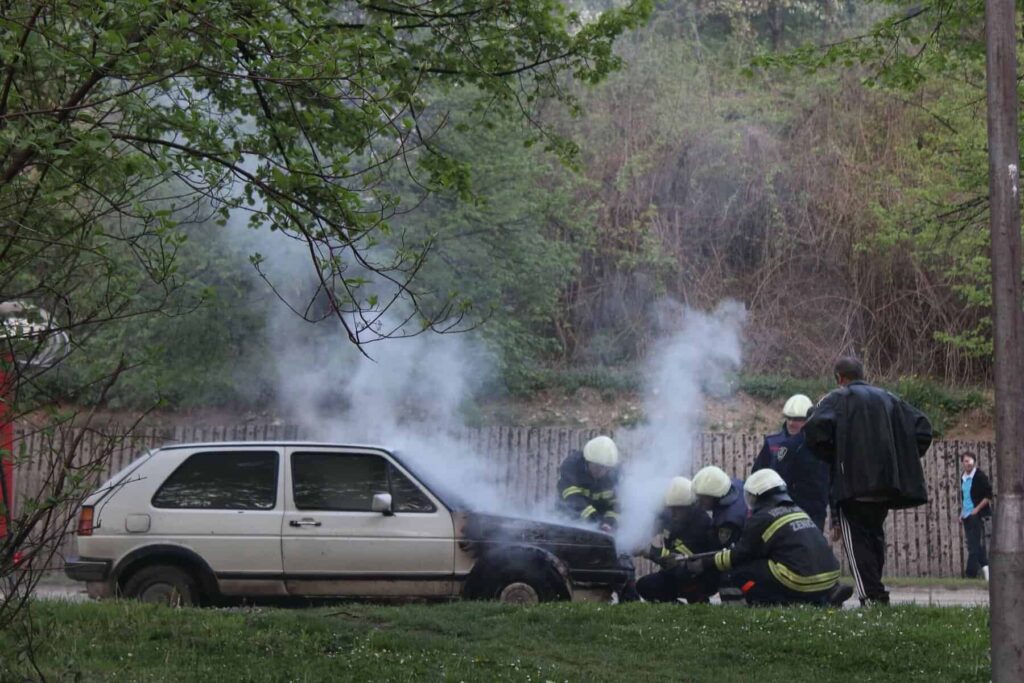
What to Do if You Smell Gas in Your Car
If you ever notice an unpleasant gas-like odor coming from your car, it is essential to take action quickly. Before panicking, try to identify the source of the smell. It could be anything from spilled liquid to something more serious. If the smell of gas is strong, it is essential to take your vehicle to a mechanic as soon as possible or, better yet, have it recovered and taken to a mechanic.
Failing to do so may cause long-term damage or even put you and your passengers in danger. Check for fuel lines or hoses that are sticking out or are loose, and if you need to, ask a professional for help. When driving, you should always be aware of what’s happening around you. This can help you get to your destination safely.
Is It Safe to Keep Driving if I Smell Gas?
Driving a car with a gasoline leak is an incredibly dangerous situation. Suppose the smell of gas is present while inside the vehicle. Pulling over and investigating the odor’s source is essential. Inside the car, identify whether there is visible liquid leaking from beneath. Checking under the hood for any hoses or other equipment that may be loose is essential.
If necessary, looking underneath the vehicle can also help spot potential problems. Regular maintenance for your car can reduce the chances of gasoline leakage, so it is important to keep up with check-ups to ensure your car does not pose potential hazards to you and others on the road.
Final Thoughts
A strong gasoline odor inside your car can be alarming. Still, it’s usually a sign of minor problems that are easy to fix, like an open fuel cap or a cracked fuel line. However, suppose these steps fail to resolve the issue. In that case, you must bring it to a certified mechanic for further investigation, especially if there are signs of leaking fluids under your vehicle’s hood.
Taking care of these problems early on will save you time and money in the long run while keeping you and your passengers safe on every journey!




